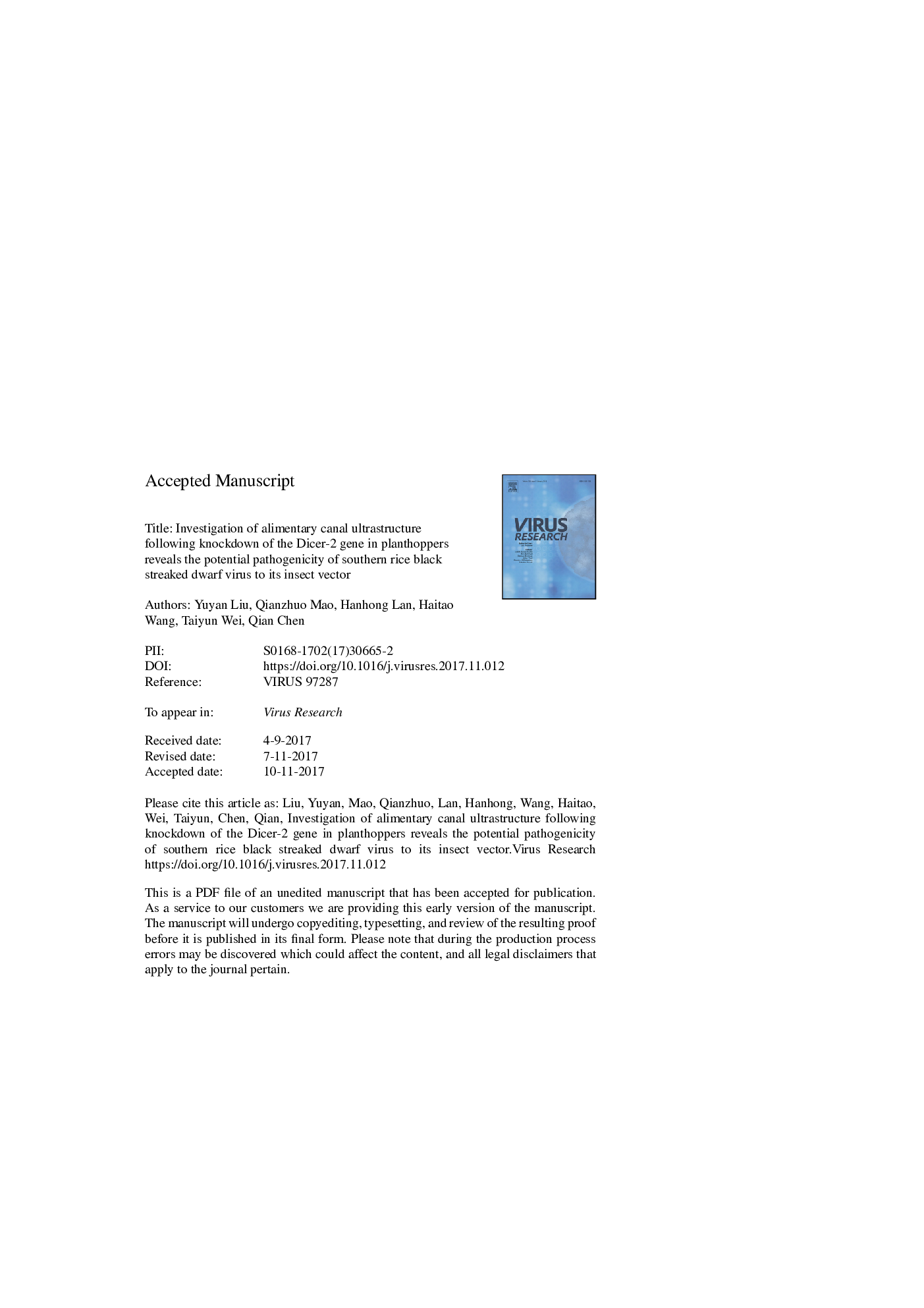| Article ID | Journal | Published Year | Pages | File Type |
|---|---|---|---|---|
| 8751994 | Virus Research | 2018 | 38 Pages |
Abstract
An increasing number of studies are suggesting that plant viruses, including southern rice black-streaked dwarf virus (SRBSDV), can adversely affect biological characteristics of insect vectors by unknown mechanisms. To study the adverse effect of SRBSDV at cellular level on the insect vector, we promoted viral infection by the disruption of the small interfering RNA (siRNA) pathway. The transmission electron microscopy was utilized to describe the ultrastructural changes that occurred in insects when the core component of the siRNA pathway, Dicer-2, was knocked down. The increasing accumulation of SRBSDV in virus-infected vector, the white-backed planthoppers, caused severe cytopathology in the alimentary canal. Similar cytopathology changes in the midgut ultrastructure were characterized in the virus-infected incompetent vector, the small brown planthopper. These results not only add support to the existing evidence suggesting that the siRNA pathway has an antiviral effect, but also reveal the universal and potential ability of SRBSDV to cause damage to the insect tissues of both the vector and non-vector.
Related Topics
Life Sciences
Immunology and Microbiology
Virology
Authors
Yuyan Liu, Qianzhuo Mao, Hanhong Lan, Haitao Wang, Taiyun Wei, Qian Chen,
